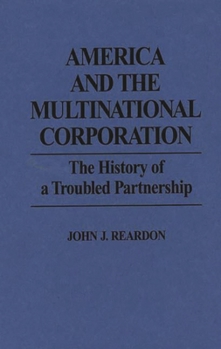America and the Multinational Corporation: The History of a Troubled Partnership
This study chronicles the unique relationship between the Federal government and the American multinational corporation, integrating it into the mainstream of American political history. It is a record of continuous adjustment on the part of both parties as each side navigated the unchartered waters of this unconventional partnership. What makes it so relevant historically is that while the Federal government was adjusting to its postwar global responsibilities, corporate America in its multinational dimension was taking on new roles which redefined the international political economy. It involved international oil companies impacting our relations with the volatile Middle East, an economic Watergate of global dimensions, and an unresolved debate on public versus private responsibilities toward the Third World and its multiple economic and social problems. Objectively presented, America and the Multinational Corporation provides the historical context for tracking the various presidential perspectives from Truman to Bush as well as the various congressional initiatives to redefine business-government relations in terms of corporate America's most aggressive offspring--the multinational.
Professor Reardon moves beyond the initial assessments of the multinational corporation vis-a-vis the Federal government, refusing to view it as a threat to the continued survival of the nation-state or as a force that the Federal government must tame at all cost. Rather, the partnership is a complex and continuously evolving relationship that may well be acquiring a new configuration as the world's economy becomes global rather than international. His study will be of interest to all students of contemporary American history as well as scholars in international political economy.




